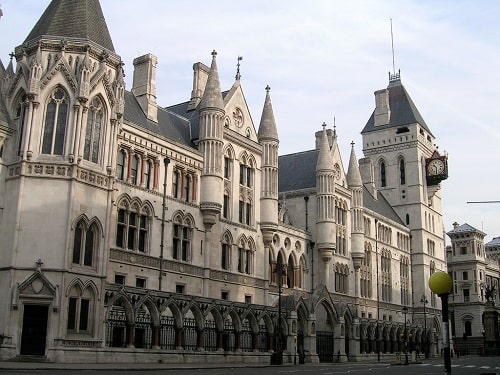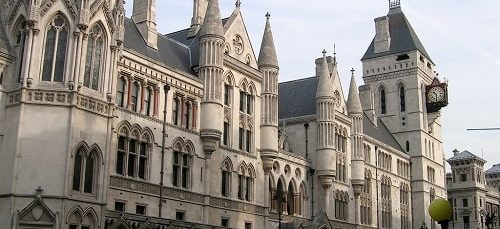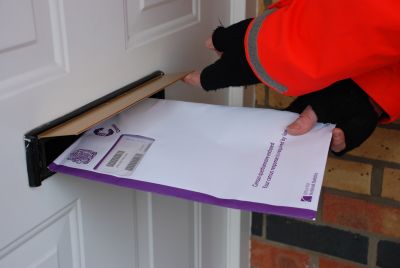Government publishes privacy (8), freedom of expression and assembly (10&11) human rights arguments on filming public meetings law
I thought it was about time to give a brief update on the filming issue and how the Local Audit and Accountability Bill is progressing through the Houses of Parliament.
On Tuesday it finished its last stages in the House of Commons (third reading and report stage) and is expected to become law around February 2014. Sadly when it becomes law in February 2014 it doesn’t settle the filming issue as section 40 (entitled access to local government meetings and documents) in the Local Audit and Accountability Bill around filming which you can read for yourself on Parliament’s website merely grants the power to the Minister to make further secondary legislation in this area.
Also in its commencement section (49(2)) which you can also also read in the same document on Parliament’s website the section on filming (as well as the more controversial section on local authority publicity) won’t come into effect until two months after the Local Audit and Accountability Bill becomes law (which if it does become law in February 2014 means it’ll be April 2014 at the earliest before there is secondary legislation on the matter).
As nobody really knows what the wording of the secondary legislation will be yet and section forty is open to a number of interpretations there have been some concerns expressed about what form it will take. I think it’s already been mentioned that the Government want to consult with the Local Government Association on this first.
Published this morning were the explanatory notes on the Commons amendments to the Local Audit and Accountability Bill which include at page 13 a statement on “compatibility with the European Convention on Human Rights”.
I will quote from this section here (the quotes are in numbered bold paragraphs with my commentary below them), hopefully it allays some fears people had over what the secondary legislation is about and repeats the article 10 (freedom of expression) arguments I’ve been making to Wirral Council about filming for some time!
60. The amendments to the Bill which would allow residents attending meetings of the full council, its committees and sub-committees to act as citizen journalists potentially engage some rights under the European Convention on Human Rights (“the ECHR”).
This is just a statement of fact, written in the ever careful language of lawyers, in my opinion they don’t “potentially engage”, they do engage.
61. The provisions would enable the Secretary of State to make regulations which are either free-standing or amend the relevant provisions in Part 5A of and Schedule 12 to the Local Government Act 1972, the Public Bodies (Admission to Meetings) Act 1960 and the Greater London Authority Act 1999 and that mirror the following elements of the Local Authorities (Executive Arrangements) (Meetings and Access to Information) (England) Regulations 2012 (“the 2012 Regulations”):
- The use of websites for the publication of information such as agendas, minutes and connected reports;
- The ability of the public to attend meetings to act as ‘citizen journalists’ (facilitating the reporting of meetings by individuals on social media); and
- Recording the decisions taken by officers.
Basically parts of the laws mentioned could do with being repealed to make the situation on filming clearer for both local Councils and those doing the filming. Otherwise there’ll be (once the secondary legislation is passed) about six different bits of law stating slightly different things about the filming issue which would be a recipe for confusion and misunderstandings (especially as each bit of law can be interpreted in different ways). Two of the acts were written before the Human Rights Act 1998 c.42 came into effect. Had they been drafted after 1998 the clauses about filming would have had to be drafted in such a way to take into account article 10 rights to freedom of expression.
The first bullet point I think refers to the media and bloggers publishing information such as agendas, minutes and reports on their blogs rather than linking to the official version on the website of the organisation they’re reporting on. This is already covered in respect of Cabinet meetings in the 2012 regulations, which also grants qualified privilege to publishers in respect of publication of these documents.
The second bullet point is about widening the definition of media to include those writing and publishing online. The current definition in the legislation of media (apart from Cabinet meetings n the 2012 regulations which already covers new media) covers newspapers, media agencies (those who supply stories to newspapers) and those recording sound or video for news broadcasts (local radio and TV) as well as those classed as programme services under the Broadcasting Act 1990. Curiously that last definition is so broad it covers publishing video footage of Wirral Council meetings online (or any public meeting of a local Council).
62. These changes follow what is already provided for in the 2012 Regulations.
My reading of this is that the secondary legislation resulting from this section of the Local Audit and Accountability Bill (apart from the potential for amending provisions of earlier legislation) will extend the regulations outlined in the Local Authorities (Executive Arrangements) (Meetings and Access to Information) (England) Regulations 2012 (“the 2012 Regulations”) to all public meetings of local councils, as well as the other bodies specified in the Local Audit and Accountability Bill.
Examples of other bodies referred to in the Local Audit and Accountability Bill would be integrated transport authorities. Locally that would be Merseytravel (which may well be have changed completely and be absorbed into the Merseyside Combined Authority by the time the secondary legislation has effect) and the Merseyside Fire and Rescue Authority.
63. The Bill as amended would also provide that the Secretary of State has powers to ensure that the public can film, blog, or tweet at all meetings of a full council, its committees and sub-committees; meetings of an executive, its committees and sub-committees; meetings of parish and town councils and Greater London Assembly meetings. This is a new proposal which reflects the changes in technology enabling broader access to information and new methods of reporting and recording council meeting proceedings.
Personally I don’t have a mobile phone so I can’t blog or tweet live at a public meeting. If I remember correctly the guidance previously issued by the Rt Hon Eric Pickles MP on filming meetings relied on legislation that technically didn’t cover parish and town councils which caused some issues. I don’t know of any parish or town councils in the Wirral and as far as I know Greater London Assembly meetings are already filmed as I’m sure I’ve previously seen Boris Johnson facing questions as the Mayor of London on the BBC Parliament channel.
64. Articles 8 (right to respect for private and family life) and 10 (freedom of expression) of the ECHR may be engaged in relation to the provisions regarding openness of council meetings. Neither of these rights is absolute and they include in their respective second paragraphs details regarding the basis on which the right may be limited.
65. Article 8 has potential to be engaged but it appears unlikely in these circumstances. The meetings being open to public attendance are unlikely to fall within the definition of “private and family life”. Lord Hope and Lord Nicholls in the case of Campbell v Mirror Group Newspapers Ltd [2004] UKHL 22 both made clear in their judgements that the first step to consider if the matter falls within the sphere of private and family life. The latter described the approach to take as follows: “the touchstone of private life is whether in respect of the disclosed facts that the person in question had a reasonable expectation of privacy”. The court in HRH Prince of Wales v Associates Newspapers Ltd [2006] EWCA 1776 highlighted that whilst there was a division over the conclusions in Campbell there was no division regarding the relevant approach in law. Given that the council meetings considered by the Bill would be held in public (unless there was a justifiable reason to exclude the public), it is difficult see a sustainable argument that attendees would have a reasonable expectation of privacy so as to engage Article 8.
Article 8 is a red herring really, as pointed out there can’t be an expectation of privacy at a public meeting open to anyone to attend where there could be over a hundred present (if it’s a particularly controversial planning application) who would hear what was said and see what was going on. From what I remember, even Wirral Council’s councillors have never claimed filming can’t happen on privacy grounds.
66. Whilst it is unlikely that the attendees’ Article 8 rights would be engaged, if a successful argument were to be made, paragraph 2 of Article 8 allows for the limitation of these rights. The Article 8 rights of those who are attending the meetings (cf. to those attending and reporting) can arguably be qualified on the basis that the limitation is:
a. in accordance with the law; as prescribed by the Bill and regulations made using the powers it contains.
b. is necessary in a democratic society. This is on the basis that wide public access to meetings and reporting on meetings increases accountability. The level of scrutiny which the public expect is influenced by the availability and ease of using different reporting methods, and this has increased since the advent of social media including blogging, tweeting etc and is further influenced by the ease of access to this technology. There is an expectation now that the public should have the ability to subject their representatives to closer and more direct scrutiny; an expectation that is shared both by members of the public and their representatives.
c. is for the protection of the rights and freedoms of others; namely the Article 10 rights of those reporting the meeting.
As pointed out above, article 8 is a qualified right and the rights of people to report public meetings has to be protected.
67. The provisions which would allow for regulations to be made on the prevention of the public from filming, reporting etc of council meetings may engage Article 10. However, it should be noted that it is envisaged that prevention of filming, reporting etc will largely be in the same circumstances in which the public would also be excluded from the meeting. As such the new provisions regarding prevention of filming, reporting etc would reflect the existing provisions on exclusion, including the common law right to exclude the public from meetings to suppress disorderly conduct. Insofar as there is a limitation on the Article 10 rights of potential attendees, this restriction can be justified on the basis that the prevention of filming, reporting etc and exclusion from meetings provisions are drafted in a manner to ensure those decisions are not arbitrary. For example the existing provisions on exclusion state the grounds on which a council may decide to hold a closed meeting, which include: where confidential or sensitive information is to be disclosed or discussed; or where the public are excluded under the common law right to suppress disorderly conduct. These reasons fall within the exceptions included within paragraph 2 of Article 10. Such reasons would be necessary in a democratic society if by not having the option to exclude public attendance would prevent the council from effectively carrying out its business. Furthermore, the exclusions would be prescribed by law as the justifications for preventing filming will be set out in the regulations and the justifications for exclusion from meetings are set out in primary legislation.
Firstly the issue of the press and public being excluded from a meeting, the suggestion that if the right to film covered the whole meeting meaning that recording equipment could be left behind and record the private part of the meeting is frankly a little ridiculous! However there are people that can stay and observe the private parts of meetings (such as other councillors and officers) that if the secondary legislation was poorly drafted would have a right to film or record these private sessions when the press and public were excluded.
I have no problem (and I don’t think anybody else would) with filming being prevented during parts of the meeting that the press and public are excluded from, however the phrase “largely be in the same circumstances” hints at other reasons to prevent filming which is worrying.
The common law right to suppress disorderly conduct is referred, yet it states “provisions are drafted in a manner to ensure those decisions are not arbitrary”. Last year at a public meeting of Wirral Council’s Sustainable Communities Overview and Scrutiny Committee, a Wirral councillor (Cllr Jerry Williams, Labour) (you can read the minutes for yourself here) went so far as to suggest that filming itself to him is regarded as disorderly conduct (rather embarrassingly six members of the Sustainable Communities Overview and Scrutiny Committee then went on to use a piece of legislation that only applies to Cabinet meetings as a rationale to prevent filming).
An opinion as to what or what isn’t disorderly conduct is (as shown in the previous paragraph) entirely arbitrary and I hope the secondary legislation states explicitly that silently filming a meeting can’t be seen as grounds for exclusion from the meeting under the disorderly conduct provisions already in the legislation.
So repeating somewhat what I said above, in my view the justification of preventing filming by excluding the press and public from the meeting is fine, the issue of preventing abuse of the disorderly conduct provision in legislation to prevent filming needs to be explicitly stated and I can’t see there being any other justifications for preventing filming.
68. Article 11, freedom of assembly and association, should also be considered. The right to freedom of assembly includes participation in public meetings. However, Article 11 is a qualified right which can be restricted. The basis of the restrictions include that is in the interests of national security or public safety, for the prevention of disorder or crime or for the protection of the rights and freedoms of others. As such the position in relation justifying qualification of Article 11 is much the same as it is for Article 10 freedom of expression.
The right of the public to be at public meetings is already in legislation and the fact that Article 11 specifically states “peaceful assembly” means that article 11 isn’t engaged if people engage in disorderly conduct. I presume this is referring to the public and press being excluded from private sessions of meetings.
If you click on any of these buttons below, you’ll be doing me a favour by sharing this article with other people. Thanks:
53.402022-3.070415


